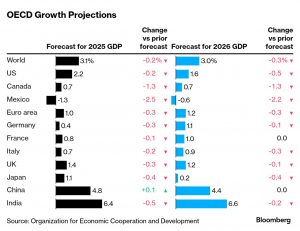In a partially redacted memo titled “ChatGPT: H1 2025 Strategy,” included in Google’s antitrust trial, OpenAI laid out an ambitious vision for the flagship service. ChatGPT, it said, can become a “super-assistant” that “knows you, understands what you care about, and helps with any task that a smart, trustworthy, emotionally intelligent person with a computer could do.”“The timing is right,” the memo said, referring to recent advances that allow OpenAI’s models to mimic human reasoning and take actions on a user’s behalf. With Ive and his team involved, we might also see OpenAI rethink the software design for ChatGPT and other apps to better surface new technical capabilities and live up to the idea of a “super assistant.
”OpenAI isn’t alone in trying to expand its AI product lineup and seed its latest technical advances more broadly. Google is bringing more AI functionality to its search engine, centering AI features in marketing for its smartphones, and recently introduced a high-end, $250 monthly subscription option for users who want access to its latest technology. Meta, meanwhile, is reportedly restructuring its AI unit to create one group focused on research and another dedicated to products.  Jony Ive Photographer: Jerod Harris/Getty Images North AmericaFor all the AI hype since ChatGPT’s launch, it remains unclear how deeply people will lean on newer artificial intelligence offerings in their daily lives – and how much they’ll pay for these services.
Jony Ive Photographer: Jerod Harris/Getty Images North AmericaFor all the AI hype since ChatGPT’s launch, it remains unclear how deeply people will lean on newer artificial intelligence offerings in their daily lives – and how much they’ll pay for these services.
OpenAI has shown that chatbots can generate billions in revenue, with 20 million subscribers now paying for the service, but the market for more advanced AI products and hardware devices is less proven. Other startupshave struggled to find traction with AI-specific devices. So-called AI agents that field personal and professional tasks for users remain a work in progress. And Chinese companies are flooding the global market with cheap AI models that rival the performance of costlier options in the US.To help with product development, AI labs have turned to social media executives who have experience building some of the world’s most widely used apps. Earlier this month, OpenAI recruited Fidji Simo, the chief executive officer of Instacart and former head of the Facebook app, to run a new “AI applications” division. OpenAI rival Anthropic previously hired Mike Krieger, an Instagram co-founder, to oversee its product efforts.Last year, Anthropic CEO Dario Amodei wrote an essay that ticked through a long list of lofty predictions for AI, including the possibility that it can cure cancer, double our lifespan and alleviate global poverty. Krieger said his job is to turn those goals into viable products.“Most people are like, ‘This is a visionary document about the potential possibility of AI,’” Kreiger told me in March. “I see it as my three-year product roadmap.”Amodei and Anthropic feel a sense of “urgency” about getting AI into people’s hands, Krieger said. Working in AI right now, he added, means you’re both “triangulating the future” while developing products in the present. “We need to build things along the way,” he said.Got a question about AI? Email me, Shirin Ghaffary, and I’ll try to answer yours in a future edition of this newsletter.


